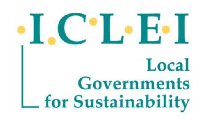The ICLEI World Congress 2015, the triennial sustainability summit of local and subnational governments worldwide, led to a number of climate announcements intended to increase local climate action.
The Congress brought together over 3000 participants, including over 100 mayors from around the world, and boasted the largest number of participants at a congress to date, with many others attending virtually via a live stream.
 11 April 2015: The ICLEI World Congress 2015, the triennial sustainability summit of local and subnational governments worldwide, led to a number of climate announcements intended to increase local climate action. The Congress brought together over 3000 participants, including over 100 mayors from around the world, and boasted the largest number of participants at a Congress to date, with many others attending virtually via a live stream.
11 April 2015: The ICLEI World Congress 2015, the triennial sustainability summit of local and subnational governments worldwide, led to a number of climate announcements intended to increase local climate action. The Congress brought together over 3000 participants, including over 100 mayors from around the world, and boasted the largest number of participants at a Congress to date, with many others attending virtually via a live stream.
Delivering a message via videolink, UN Secretary-General Ban Ki-moon said cities would be the drivers of global transformation and encouraged them to strengthen their networks.
Thirty-five mayors, including those of Johannesburg, Paris and Montreal, added their names to the Compact of Mayors, with the mayor of Seoul announcing a plan to bring even more cities into the fold. Launched at the 2014 UN Climate Summit, the Compact is a coalition of mayors and city leaders voluntarily committing to cut emissions, track progress and prepare for the impacts of climate change, through consistent, public reporting of efforts. Michael R. Bloomberg, UN Secretary-General’s Special Envoy on Cities and Climate Change, said that the Compact proves that international cooperation on climate change can lead to results.
Park Won Soon, Mayor of Seoul, announced the Seoul Action Plan, which aims to: motivate more cities to take part in the Compact; enable cities to make significant progress before the Paris Climate Change Conference in December 2015, and pressure national governments to reach a binding agreement; and address climate change through, inter alia, planning low-emission development and intensifying city-city cooperation. Mayor Park underscored that city-level activities account for 70% of emissions, with the majority of climate actions that contribute to global climate goals occurring in cities. He added that cities are facing “unprecedented levels of urbanization,” making the need for effective local climate action even more urgent. Mayor Park Won announced Seoul’s commitment to reduce emissions by 10 million metric tons over the next five years.
Also during the Congress, ICLEI launched the new Transformative Actions Program (TAP) to tap the potential of local and subnational climate action, including selecting 100 potentially transformative projects ahead of the Paris conference in order to enhance capital flows to cities. The programme aims to improve access to existing capital flows to cities and regions, and catalyze and accelerate additional capital flows from public and private investors.
Mayors also adopted the Seoul Declaration, which sets out a path to urban sustainability, and establishes how cities can evolve in response to the challenges faced. ICLEI’s Strategic Plan 2015-2021, which was also adopted during the Congress, provides a framework for offices and services to members, and outlines ICLEI’s role in the world.
Global Environment Facility (GEF) CEO Naoko Ishii also attended the Congress, meeting with mayors, local government leaders and city-based networks, national governments and others to discuss urban-related issues from an environmental standpoint. She discussed the GEF’s upcoming sustainable cities flagship programme, which will: help cities and national governments integrate long-term sustainability principles within urban design, planning and implementation; feature interlinked global and local actions; provide a global knowledge sharing platform; and improve urban resource flows and investments. She said the GEF is working in 23 cities in 11 countries, with total GEF financing of US$142 million, and an estimated co-financing of US$1.48 billion.
Finally, the World Congress 2015 Special Legacies were presented, including CityFood (the ICLEI community on urban agriculture and resilient city food systems), the 100% Renewable Energy Project, and the new Global Sustainable Public Procurement Network. Stressing the importance of partnerships, Yolanda Kakabadse, WWF President, highlighted the WWF-ICLEI partnership in ensuring that “the concept of a city can be reinvented.”
The ICLEI World Congress meets every three years, bringing together local governments and partners committed to sustainable urban development, and showcasing innovative practices and solutions. The first congress convened in New York City, US, in 1990. The World Congress 2015 was held from 8-12 April 2015 in Seoul, Republic of Korea. [World Congress 2015 Website] [ICLEI Press Release, 11 April] [ICLEI Press Release, 10 April] [ICLEI Press Release, 9 April] [UN Press Release] [UN-Habitat Press Release] [GEF Press Release] [Compact of Mayors Website] [Seoul Action Plan] [Seoul Declaration] [TAP Website]